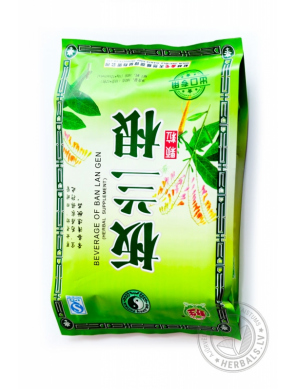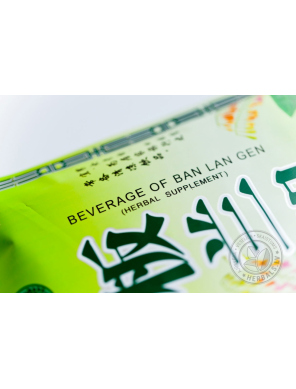Products
- Ayurvedic tea
- Indian teas
- Supplements
- Oils and drinks for health
- Facial Care
- For Skin
- Dental care
- For personal hygiene
- Sport and Yoga
- For Hair Health
- For massage
- Healthcare
- For Women
- Supplements for Men
- Aromatherapy Essential Oil
- Incense sticks
- Indian Food
- Vegan
- Superfoods
- For meditation
- For home
- New Products
- Specials
- Ayurvedic Herbs
- Wholesale
- Gifts and Kits
Browser notifications:
Dr.Chen Balangen Echinacea tea
Dr.Chen Balangen Echinacea tea
Code: 2126
9.00€
Dr.Chen Balangen Echinacea tea 15g N12
Dr.Chen Balangen Echinacea tea
Echinacea Purpurea – This pretty and potent flower goes by the name Big Purple Coneflower and has reddish purple flowers that are about 4 inches in diameter and grows to 5 feet tall. Well revered in Europe for its ability to boost the immune system, this herb is commonly grown as an ornamental plant in gardens.
All are strictly native to eastern and central North America. Purple coneflower is one of the most popular herbs in America and was discovered and used by the Native Americans in the early days. It is named so because of its prickly scales in its large conical seed head. It takes after the look of an angry hedgehog due t the similarity of the spines while the composite flowers are large and showy heads. The flowers of the purple coneflower bloom from early to late summer.
Medicinal uses
Since olden days, Echinacea purpurea has been used to treat various diseases ranging from scarlet fever, venereal diseases such as syphilis, malarial infections, blood poisoning, and diphtheria. In recent times, Echinacea purpurea or purple coneflower is used to reduce the effects of common cold and flu and soothe the symptoms of painful diseases such as sore throat or pharyngitis, severe cough and cold, and reduce fever. Most herbalists are of the opinion that Echinacea be recommended to help build the immune system and boost the body's fight against infections. Recent laboratory and animal research studies show that Echinacea purpurea possesses active chemical compounds that help to boost the activity of the immune system, alleviate pain, cut down inflammation, and bring about positive hormonal, antiviral, and antioxidant changes to treat disorders. Some professional herbalists advocate the use of Echinacea purpurea in treating urinary tract disorders, yeast infections, ear infections or otitis media, tinea pedis, inflammation of the sinus and allergic rhinitis. It is also used to treat certain wounds that are slow in healing. Although purple coneflower is known to be a safe herb, patients experiencing tuberculosis, blood disorders, diabetes, multiple sclerosis, autoimmune disorders, and liver disorders should refrain from consuming Echinacea purpurea preparations. It is possible that Echinacea could bring down the potency of medications that inhibit the immune system. Moreover since Echinacea has the ability to boost immune function, people who are under treatment for organ transplant with immunosuppressive medications must strictly avoid taking the herb as it contradicts the traditional medication.
One way to reap the many benefits of echinacea is to enjoy a cup of warm tea. Echinacea tea (which may contain one or more varieties of the herb) contains many vitamins and minerals including vitamins A, B-complex and E along with magnesium, calcium, iron, potassium and sodium.
Taste
Mildly minty, with a twist of citrus. You may notice echinacea’s characteristic tongue-tingling effect, a sign of very high quality.
In addition, the tea contains polysaccharides – located in the above-ground parts of the plant that are responsible for triggering the immune system and glycoproteins, alkamides, volatile oils and flavonoids that are helpful therapeutic compounds found in the roots.
How to make the perfect cup of echinacea tea
Warning:
Echinacea is clearly a potent therapeutic herb that has numerous health benefits. However, people with compromised immune systems such as HIV, AIDs, multiple sclerosis or tuberculosis should not use the herb without supervision from a health professional.
If you are allergic to plants in the Asteraceae family such as daisy, sunflower, ragweed and chrysanthemum, you may also be allergic to echinacea.
Oriental Herbs Ltd, Hungary
15g N12 / 180g
Echinacea Purpurea – This pretty and potent flower goes by the name Big Purple Coneflower and has reddish purple flowers that are about 4 inches in diameter and grows to 5 feet tall. Well revered in Europe for its ability to boost the immune system, this herb is commonly grown as an ornamental plant in gardens.
All are strictly native to eastern and central North America. Purple coneflower is one of the most popular herbs in America and was discovered and used by the Native Americans in the early days. It is named so because of its prickly scales in its large conical seed head. It takes after the look of an angry hedgehog due t the similarity of the spines while the composite flowers are large and showy heads. The flowers of the purple coneflower bloom from early to late summer.
Medicinal uses
Since olden days, Echinacea purpurea has been used to treat various diseases ranging from scarlet fever, venereal diseases such as syphilis, malarial infections, blood poisoning, and diphtheria. In recent times, Echinacea purpurea or purple coneflower is used to reduce the effects of common cold and flu and soothe the symptoms of painful diseases such as sore throat or pharyngitis, severe cough and cold, and reduce fever. Most herbalists are of the opinion that Echinacea be recommended to help build the immune system and boost the body's fight against infections. Recent laboratory and animal research studies show that Echinacea purpurea possesses active chemical compounds that help to boost the activity of the immune system, alleviate pain, cut down inflammation, and bring about positive hormonal, antiviral, and antioxidant changes to treat disorders. Some professional herbalists advocate the use of Echinacea purpurea in treating urinary tract disorders, yeast infections, ear infections or otitis media, tinea pedis, inflammation of the sinus and allergic rhinitis. It is also used to treat certain wounds that are slow in healing. Although purple coneflower is known to be a safe herb, patients experiencing tuberculosis, blood disorders, diabetes, multiple sclerosis, autoimmune disorders, and liver disorders should refrain from consuming Echinacea purpurea preparations. It is possible that Echinacea could bring down the potency of medications that inhibit the immune system. Moreover since Echinacea has the ability to boost immune function, people who are under treatment for organ transplant with immunosuppressive medications must strictly avoid taking the herb as it contradicts the traditional medication.
One way to reap the many benefits of echinacea is to enjoy a cup of warm tea. Echinacea tea (which may contain one or more varieties of the herb) contains many vitamins and minerals including vitamins A, B-complex and E along with magnesium, calcium, iron, potassium and sodium.
Taste
Mildly minty, with a twist of citrus. You may notice echinacea’s characteristic tongue-tingling effect, a sign of very high quality.
In addition, the tea contains polysaccharides – located in the above-ground parts of the plant that are responsible for triggering the immune system and glycoproteins, alkamides, volatile oils and flavonoids that are helpful therapeutic compounds found in the roots.
How to make the perfect cup of echinacea tea
- Mix one part echinacea inc with ¼ part lemon grass and ¼ part mint leaves (of any kind). Pour hot water over the leaves and let it steep for five minutes. Strain and add raw honey to taste.
Warning:
Echinacea is clearly a potent therapeutic herb that has numerous health benefits. However, people with compromised immune systems such as HIV, AIDs, multiple sclerosis or tuberculosis should not use the herb without supervision from a health professional.
If you are allergic to plants in the Asteraceae family such as daisy, sunflower, ragweed and chrysanthemum, you may also be allergic to echinacea.
Oriental Herbs Ltd, Hungary
15g N12 / 180g
Also bought
 PAPAYA Tea Arvin's 20 tea bags
3.00€
Papaya leaf tea
PAPAYA Tea Arvin's 20 tea bags
3.00€
Papaya leaf tea
 TULSI MASALA TEA 100g
12.90€
An exotic blend of spices, black tea and Tulsi leaves
TULSI MASALA TEA 100g
12.90€
An exotic blend of spices, black tea and Tulsi leaves
 Yogi tea HALS WARMER - THROAT COMFORT
4.90€
Comfort of throat
Yogi tea HALS WARMER - THROAT COMFORT
4.90€
Comfort of throat
Top sellers
 Yogi tea Detox
4.90€
Cleansing the body
Yogi tea Detox
4.90€
Cleansing the body
 Yogi tea ABEND - Bedtime
4.90€
Quiet night. Relieves stress and anxiety, eliminates insomnia
Yogi tea ABEND - Bedtime
4.90€
Quiet night. Relieves stress and anxiety, eliminates insomnia
 PAPAYA Tea Arvin's 20 tea bags
3.00€
Papaya leaf tea
PAPAYA Tea Arvin's 20 tea bags
3.00€
Papaya leaf tea
This item has been added to cart.











